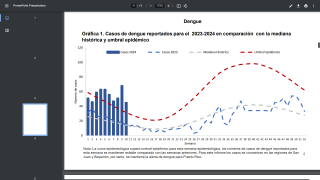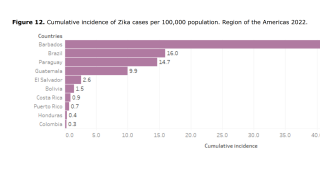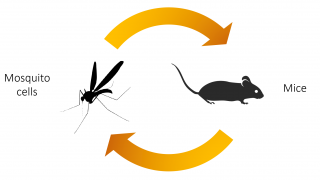Sexual Transmission of Zika Time-Limited

While previous studies reported male semen transmitted the Zika virus to sexual partners, researchers did not know how long semen remained infectious.
Perhaps most importantly, it has been suggested that sexual transmission of Zika might pose a greater risk of fetal infection than the risk associated with mosquito-borne transmission.
If so, the interruption of sexual transmission could play a critical role in preventing serious complications associated with fetal infection.
A new study does not definitely answer these questions but suggests infected men might not shed the Zika virus in their semen for as long as once thought.
This study by the Centers for Disease Control and Prevention (CDC) shows that this infectious time frame is rather short, and only from very potent infections.
In this CDC study, 4 percent of the ZIKV RNA–positive semen samples were found to be infectious.
Additionally, infectivity was observed only in samples that were obtained within 30 days after illness onset, and the semen had a viral load of more than 7.0 log10 RNA copies per milliliter.
A total of 1,327 semen samples from 184 men and 1,038 urine samples from 183 men were obtained 14 to 304 days after illness onset. ZIKV RNA was detected in the urine of 7 men (4%) and in the semen of 60 (33%), including in semen samples from 22 of 36 men (61%) who were tested within 30 days after illness onset.
This finding suggests the potential shortcomings of current virus-detection standards when it comes to the relevance for infectious disease and public health.
Many people infected with Zika won’t have symptoms or will only have mild symptoms. However, a pregnant woman, even one without symptoms, can pass Zika to her developing fetus, says the CDC.
Previously, a cohort study published in the New England Journal of Medicine showed that among pregnant women with symptomatic, PCR-confirmed Zika virus infection, birth defects possibly associated with ZIKV infection were present in 7% of fetuses and infants.
Additionally, this study said birth defects occurred more frequently when mothers had been infected early in the pregnancy, said these researchers.
The Zika virus is a single-stranded RNA virus that is transmitted by several types of mosquitoes. The infection has been linked to congenital microcephaly and other adverse pregnancy outcomes and to the Guillain–Barré syndrome.
Zika virus has been previously reported in various countries, according to the CDC.
Heinz Feldmann, MD, from the National Institutes of Health, said this study highlights the limits of molecular testing when estimating a disease's infectivity. Viral isolation, more laborious and time-consuming, is the only way to definitely predict how likely a disease is to be transmitted.
“We must further understand the source and mechanism leading to virus latency or persistence in semen, which organelles and cell types produce virus, and the viral load in seminal fluid. These are just a few important research questions to be addressed.”
“Thus, the diagnostic situation for Zika is far more complicated than it seems," said Dr. Feldmann.
These researchers did not disclose conflicts of interest: Paul S. Mead, M.D., M.P.H., Nisha K. Duggal, Ph.D., Sarah A. Hook, M.A., Mark Delorey, Ph.D., Marc Fischer, M.D., M.P.H., Dana Olzenak McGuire, Ph.D., Heidi Becksted, M.P.H., Ryan J. Max, M.P.H., Michael Anishchenko, Ph.D., Amy M. Schwartz, M.P.H., Wen-Pin Tzeng, Ph.D., Christina A. Nelson, M.D., M.P.H., Erin M. McDonald, Ph.D., John T. Brooks, M.D., M.P.H., Aaron C. Brault, Ph.D., and Alison F. Hinckley, Ph.D.
Our Trust Standards: Medical Advisory Committee


























